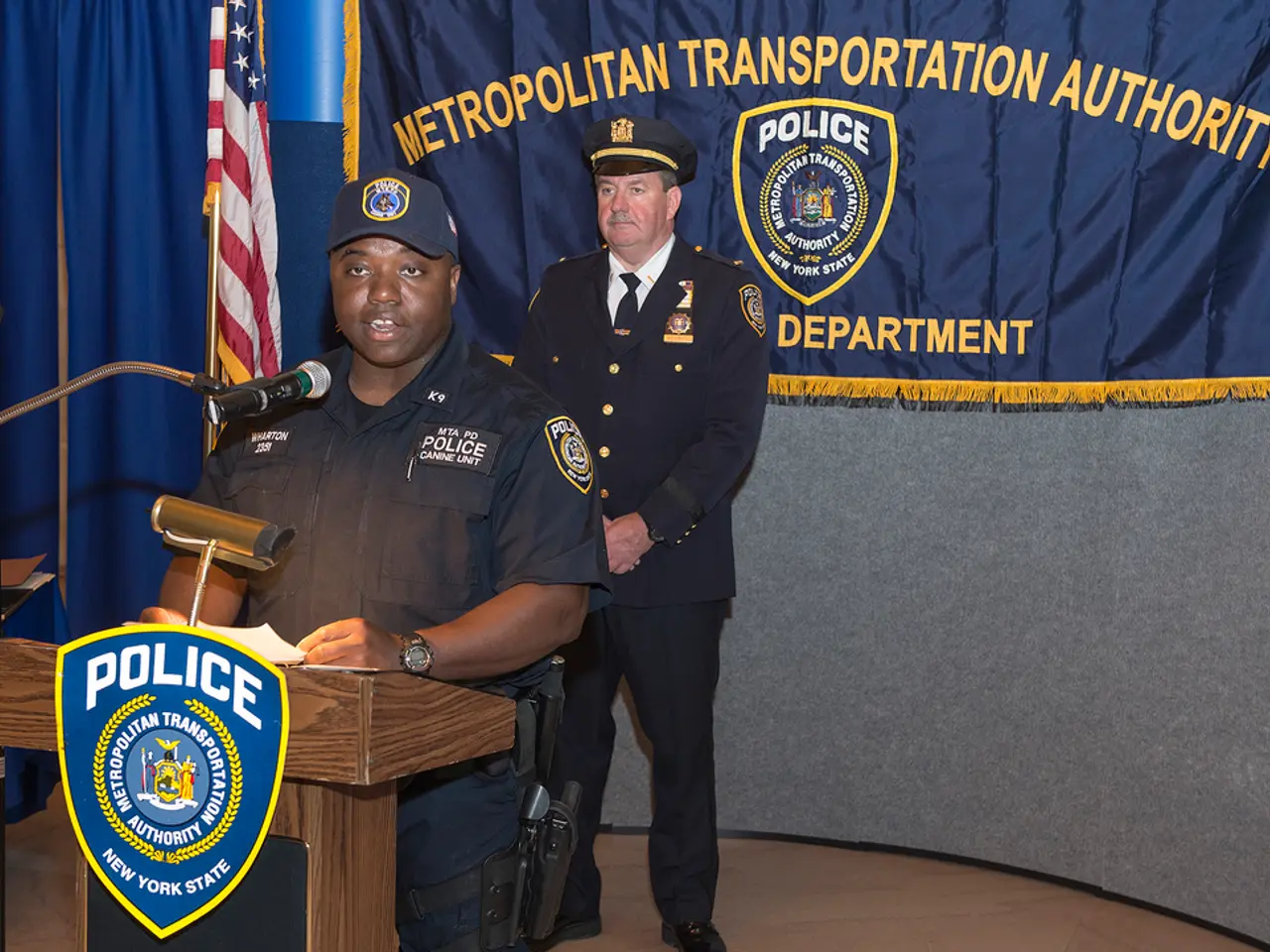Former Capitol Police officer voices concerns over Trump's DC enforcement measures as being problematic
Retired U.S. Capitol Police officer Harry Dunn has voiced his concerns about the deployment of the National Guard and Metropolitan Police Department (MPD) in Washington D.C., during President Trump's administration. Dunn criticizes the lack of a precise, strategic plan in these deployments, describing them as a brute-force show of "toughness and authority" without addressing root causes of crime or public safety effectively.
Dunn, who served in the U.S. Capitol Police for 15 years and retired in 2023, highlights the inconsistency in Trump's response between the January 6 Capitol riot, when deployment of the National Guard was delayed, and his later rapid use of the Guard amid claims of a crime wave in D.C. Dunn calls Trump's law and order rhetoric disingenuous and questions the effectiveness and intentions behind flooding the streets with military and police forces rather than implementing targeted crime-reduction strategies.
The retired officer also believes that the National Guard is not equipped to handle situations that require discernment, de-escalation, and specialized approaches. He warns that this move could tarnish police relationships in the community. Dunn expresses frustration that President Trump did not deploy the National Guard during the riot on Jan. 6, despite requests for backup.
On the other hand, the head of the D.C. Police Union praised the addition of National Guard forces, stating that it would be a "critical stopgap" to address "out of control" crime. However, Dunn voices concerns about National Guard deployment and D.C. police officers having free rein to do as they please. He believes that such a statement as "police officers can do whatever the hell they want" gives bad apples cover to do whatever they want, potentially violating rights and rules.
Contrary to President Trump's claims, data shows that crime in Washington, D.C. has been on a steady decline. According to MPD data, violent crime is down about 26% in Washington, D.C. from this time compared with last year. Crime in the city reached a 30-year low last year, and the murder rate is down and is trending towards its historically low levels, as stated by FBI Director Kash Patel.
Despite the decline in crime, President Trump announced he will use the National Guard and MPD to target "bloodthirsty criminals" in Washington, D.C. This move, according to Dunn, could further strain relationships between the police and the community. Dunn, who dealt with homeless people at the United States Capitol, found that some felt safer on the street than in shelters.
In summary, Harry Dunn's concerns focus on the lack of a strategic plan in deploying the National Guard and MPD, the use of heavy force as a political show rather than an effective public safety measure, the inconsistency in Trump's response between January 6 and later crime claims, the diversion from addressing underlying causes of crime to focusing on offenses with a law-and-order lens, and the potential for overreach, civil liberties violations, and the appropriateness of militarized responses to urban crime in the nation’s capital.
- Harry Dunn, expressing his concerns, contends that the deployment of the National Guard and Metropolitan Police Department (MPD) in Washington D.C., during President Trump's administration, may further strain relationships between the police and the community, given the apparent lack of a strategic plan and the prioritization of heavy force over targeted crime-reduction strategies.
- In the context of general news, politics, war-and-conflicts, crime-and-justice, and community, Harry Dunn, a retired U.S. Capitol Police officer, questions the effectiveness and intentions of flooding the streets with military and police forces rather than implementing targeted strategies, warning that this move could tarnish police relationships in the community and potentially lead to civil liberties violations.








